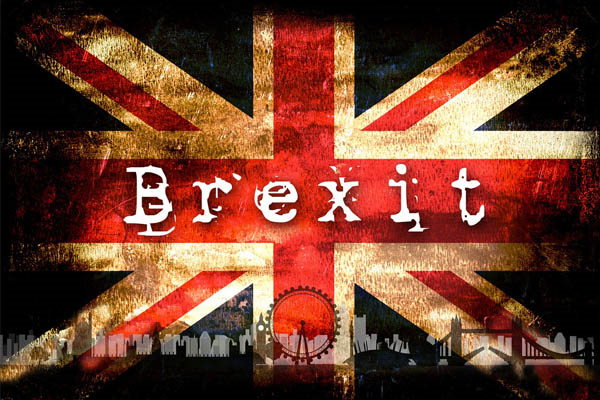Brexit – What it means for the future of currency exchange
Overview:
Sterling’s dramatic depreciation post-Brexit has hindered the UK’s importers to keep prices competitive, with the fall now forcing them to either hike prices, in some cases by over 10%, or share the increase with their buyers and reduce their profit margins.
The political risk surrounding the triggering of Article 50 is anchoring Sterling’s potential gains, with the market primed to overreact to any unexpected comments from Theresa May and her colleagues alike. Goldman Sachs are forecasting further depreciation of up to 10%.
The European central bank’s monetary policy tool kit and the supporting war chest has been of tremendous value to the Euro recently. Volatility increases across all asset classes along with the potential for further periphery nations to break away from the Euro trading bloc, mean European politicians are having to extinguish fires on numerous fronts.
The number of possible scenarios, not just for the UK but for several European nations over the years ahead is endless. Recent developments between Canada and the EU paint a difficult looking future for the UK/EU negotiations.
Wallonia, a region of Belgium with a population of 3.5million, was blocking the recent EU – Canada trade deal, which was eventually signed after seven years of talks. Wallonian farmers were opposed to the deal because they fear that the country will be flooded with cheap agricultural imports.
The developments have led to Sir Andrew Cahn, the former head of the UK Trade & Investment, warning that Britain could have to wait five years before a post-Brexit trade deal with the EU is secured. Elsewhere, numerous nations have expressed publicly their interest in securing trade deals with the UK, including China, Brazil, India, Argentina and Australia.
There are many concerns that the ‘Leave’ camp has regarding negotiations. Theresa Mays discussions will be scrutinised not only by her peers, but the public and media will have their eyes firmly fixed upon trade talks and immigration. Any deviation from the perceived roadmap that the public expects to follow will create resentment and erode any remaining trust between the politicians and the public.
What does this mean for Individuals?
The private individual foreign exchange market is dominated by payment services for:
- One-off expense such as property purchases/sales
- Recurring payments such as school fees, mortgages and pension or dividend payments
Essentially, all of the above is now pushing close to 20% more expensive than they were twelve months ago. This huge depreciation in Sterling is now presenting Brits with a tough question – do we migrate/make purchases now or wait for a Sterling recovery over the coming years?
The simple answer is no one knows. Each situation is individual to that person. Necessity, time restrictions and available funds and are just some of the factors to consider.
Uncertainty within the foreign exchange market causes fear. While uncertainty persists, Sterling will remain vulnerable. Once Article 50 has been triggered and talks surrounding immigration and trade agreements begin, the future will begin to look clearer and slowly start to restore some order to not only the market but the way in which Sterling will trade.
Until that time, you need to consider what a drop in Sterling will do for your situation:
- If it means that you can no longer afford that dream holiday home abroad, then you need to speak with an expert and look at utilising a forward contract
- If it means that your overseas mortgage or school fees are now becoming far too expensive, again, you need to speak with an expert
- If you are selling an overseas property or moving back to the UK, now is a fantastic time to move money back, providing you with a huge boost compared to twelve months ago
What does this mean for businesses?
Numerous factors, from costed levels, sources of raw materials and finished products, commodity prices, central bank monetary policies, political risks and even consumer spending are all combining to provide further uncertainty for the UK’s SME market.
There are options available to businesses to mitigate some of the above, without speculating and without entering into complex financial derivatives. Typical UK import/export driven companies do not require and do not have the sophisticated systems in place to manage a portfolio of complex financial instruments.
Due to Sterling’s depreciation, the import of both raw materials and finished products has increased dramatically. Businesses are now facing the question of whether to hike prices considerably and let their buyers cover the increase or whether to trim their profit margins and share the pain.
If you are amending your internal budget levels, now is a good time to look at forward contracts. They will provide you with certainty in uncertain times and ensure that your profit margins are not eroded further. Long term hedging (2 – 3 years) is something that many businesses are trying to avoid at present, hoping to see some bounce back from Sterling within that time frame.
Many companies are facing having to lay off staff, find new suppliers and even stop certain product lines due to the current increase in costs. Although not the answer to all problems, managing foreign currency in a diligent fashion can provide:
- Savings if using a competitive foreign exchange provider outside of the bank
- Certainty on profit margins and transparency on future cash flows
- A competitive edge within your industry
- Consistency for your buyers as you can fix their prices over a longer term
- The confidence to enter new markets and minimise currency volatility
Risk management is an often-overlooked aspect of foreign exchange and international trading. When done correctly, it will give you transparency, certainty on profit margins and future cash flows and allow you to concentrate on your core business. Speaking with an industry expert will provide you with valuable insight into how your business can save on costs associated with foreign exchange and be more resilient to adverse market moves, whether they are derived from political or economic risk.
The Future:
Looking further ahead, there is potential that other nations follow in the UK’s footsteps and request a referendum, potentially spelling the end of the European project over the years to come.
Domestic currencies may return along with the freedom that many countries and their citizens are currently demanding.
There is a political tug of war underway. The Eurozone will not want to be portrayed as weak and cave into the UK’s demands. They will want to set a precedent and ensure that they are seen as the ones with the power in upcoming negotiations.
As we saw in the pre Brexit run up, political parties, the media and many so-called experts have all embellished their respective facts – this term being used loosely. Fear sells and haven’t we been heavily exposed to it over recent months.
Whatever happens in the future, we can be sure there will always be another economic downturn, dramatic political event and monetary policies like we have never seen before. Rest assured, you can only control so much. By gathering as much information as possible, not only on your industry but on the tools you have available at your disposal within the foreign currency market, you can make informed decisions that are cost and time efficient, helping to support and grow your business.
Foreign exchange is not always about getting the best price. It’s about so much more.


